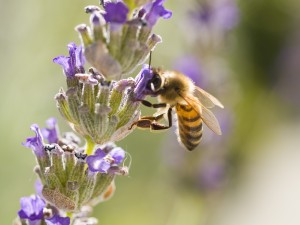
In general, when we think about honey bees, we may think about them as insects that sacrifice themselves for the hive. The idea of the queen in the hive could reinforce a belief that honey bees are simply workers or slaves. However, a study reported by the journal Science leads to believe that honey bees are more than “programmed” creatures. In fact, the research concluded that all honey bees do not share the same wants and that some of them find it pleasurable to go towards the unknown.
Effectively, when the members of the colony become too numerous for the hive, certain bees go look for a new habitat for the colony. This situation can help identify adventure seeker bees. Similarly, Sonia Van Gilder Cooke in her article in newsfeed.time.com wrote:
Instead, some bees are thrill-seekers always looking for a new experience. So how does a bee get a rush? One way is by becoming a nest scout. When the colony outgrows its hive, it has to find a new place to live, and that’s when a vanguard of scout bees takes off in search of new digs. These brave little nest scouts (drawn from less than 5% of the colony) are also much more likely than the average bee to become food scouts.
An element that shows that these types of behavior are not only seen during a period of considerable growth of the hive is the fast that even concerning feeders, the team of the entomologist Gene Robinson found different personality traits in bees. Truly, in an article by Emily Sohn published on MSNBC.MSN.com, one can read the following:
To find out what drives that kind of risk-taking behavior in honeybees, Robinson and colleagues started by using an experiment to classify as scouts those bees that were driven to seek out newly introduced feeders. The majority of bees played it safe and chose to stick with the feeder they were trained on.
However, how can scientist define that what they seeing may actuality be different characters in honey bees? An element of response comes from the fact that by having certain honey bees present in different context the same type of behavior, this type of behavior can be seen as a personality trait. Accordingly, the article by Emily Sohn mentions:
In order to qualify as what we think of as personality traits, certain kinds of behaviors have to apply in different contexts. The researchers were able to demonstrate this kind of consistency in honeybees by showing experimentally that food-scouting bees were more than three times as likely to also scout out new nest sites compared to less adventurous bees.
This belief that some honey bees are more adventurous than others is reinforced by the fact that the gene activity in non scout bees and scout bees were very different. Actually, in an article published on Redorbit.com it can be read that:
Using microarray analysis, the research team studied the brains of the food and nest scouting bees against the non-scouting bees. This research showed that there are thousands of genetic differences between the brains of the scouting bees and the non-scouting bees. The research team was shocked by the results.
Nonetheless, these differences in personality within the colony can be modified. At the core of this modification is the manipulation of the chemicals glutamate, octopamine and dopamine. Pointing out this fact, Cassie Ryan of the Epoch Times wrote:
The researchers used different chemicals to test the relationship between brain signaling and novelty-seeking, and found that non-scouting bees could be induced to become scouts with glutamate and octopamine, while scouting could be suppressed by blocking dopamine.
With these results, it appears that honey bees are very complex creatures that may be driven, for some, by the desire to explore. I don’t know if the results of this study will permit to limit the colony collapse disorder but they are certainly interesting facts about honey bees.
To get 10 free email lessons about beekeeping I invite you to Click Here to visit the sign up page at: .
